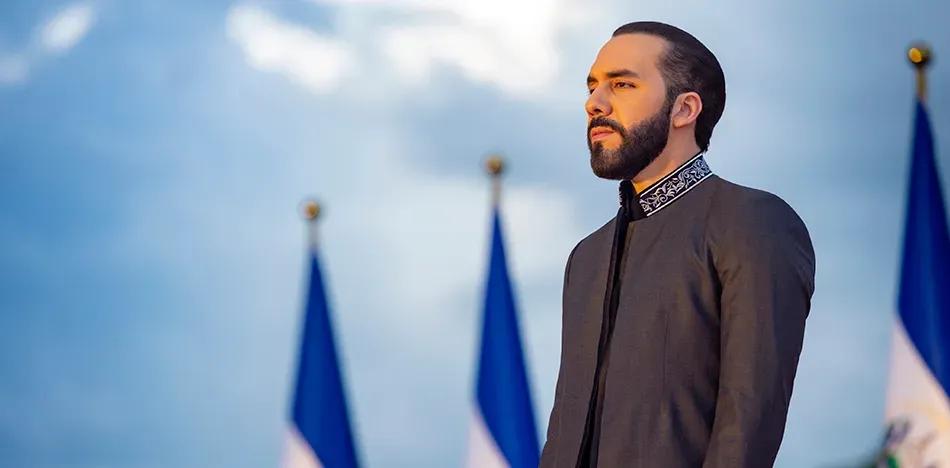The absolutism of the popular
The 21st century, it seems, is not the era of the end of history, but of the sophisticated recycling of illiberal regimes under stylized forms legitimized by the ballots. Nayib Bukele, president of El Salvador, is not a classic-style dictator: he does not wear a military uniform, does not censor in the name of the State, nor shoots at crowds from balconies. His aesthetic is digital, his lexicon is millennial, and his legitimacy springs, at least formally, from the popular vote. However, the institutional scaffolding he is building dangerously emulates the most structured autocracies on the planet.
Bukele is not a regional anomaly. He is the most complete expression of a global trend that feeds on democratic fatigue and institutional void. What presents itself as political innovation is, in essence, a restoration of unipersonal power by other means. His recent constitutional reform—which eliminates the second electoral round, extends presidential mandates, and enables indefinite reelection—consummates a regressive shift that transcends the circumstantial: it is the consecration of a regime without checks, of a power that recognizes no limits beyond itself.
From digital Bonapartism to Central American Caesarism
The Bukele model is a laboratory of Caesarism adapted to the age of the algorithm. His authoritarianism does not need tanks, but trending topics. He has managed to govern under a state of exception for more than two years, suspending constitutional rights with a chilling naturalness, while maintaining an approval rating close to 90%. Like Vladimir Putin in Russia or Recep Tayyip Erdoğan in Turkey, his legitimacy is based on a narrative of “restored order,” a messianic drive to save the nation from its internal demons: in this case, the gangs.
But there is a key difference: Bukele did not inherit a party structure nor did he rise from the ruins of the system. He built it from an anti-political promise, displacing traditional elites with a disruptive campaign that became institutional hegemony. Today, he controls Congress, the Supreme Court, the Prosecutor's Office, and the public narrative. The republic of El Salvador is, in effect, a party-State.
The mirror of Ortega and the reflection of Putin
The comparison with Nicaragua and Venezuela is no longer a hyperbolic resource, but an empirical observation. Like Daniel Ortega, Bukele removed the Supreme Court with an institutional purge; like Nicolás Maduro, he reconfigured the legislative map based on party calculations; like Putin, he reformed the Constitution to eternalize his power under democratic garb.
This authoritarian transfiguration, however, occurs with a stylistic difference: Bukele does not resort to anti-imperialist speeches or Bolivarian doctrines. His rhetoric is neoliberal in economics, punitive in social matters, and technocratic in form. He has managed to flirt with both Donald Trump and Javier Milei, forming a new global right-wing illiberal axis with anti-progressive rhetoric and authoritarian impulses.
The result is an unprecedented hybrid: a cool authoritarianism, Instagrammable, validated by influencers, amplified by bots, and embraced by social sectors that see in him not a despot, but a savior.
Between plebiscitary democracy and a permanent state of exception
The most unsettling paradox of the Bukele case is that, so far, everything has been legal. The reforms were approved by Congress, elections are held regularly, and institutions function... under his dominance. What has eroded is not the formal legality, but the very architecture of liberal constitutionalism: the alternation of power, the balance of powers, individual rights.
Bukele embodies what Carl Schmitt called “sovereignty by decision”: a leader who concentrates power in the name of an emergency (in this case, security), legitimized by a mass that adores him and is willing to reconfigure the legal order according to the demands of the moment. It is the state of exception turned into the norm, securitarian populism as a governing practice.
Mass incarcerations, de facto censorship of media like El Faro, the forced exile of NGOs like Cristosal, and the militarization of public discourse complete a scenario of “dictatorship of efficiency” that unnerves even the most stable democracies. Because if success justifies the concentration of power, how much then is democracy worth?
Bukele, Milei, and the temptation of functional authoritarianism
Javier Milei's enthusiasm for Bukele is not trivial. His presence at the inauguration of the Salvadoran's second term, and his progressive discursive transformation—from classical liberal to alt-right Trumpist—reveal an ideological shift with structural consequences.
As shown by a recent study commissioned by his advisor Santiago Caputo, there are sectors of the population willing to renounce democracy in exchange for economic stability. That question, which seemed unthinkable two decades ago, today resonates with leaders who present authoritarian order as the only way to overcome chaos.
The Bukele-Milei-Bolsonaro-Trump synergy is not an isolated phenomenon: it is an informal power network that shares methods, symbols, algorithms, and common enemies. In that ecosystem, human rights are a nuisance, critical journalism a threat, and independent institutions an eccentricity of the past.
Between uncomfortable lucidity and lucid hope
Is Nayib Bukele a modern dictator? The most honest answer is also the most disturbing: he does not need to be. The classic mold of a dictator becomes unnecessary when the new absolutism camouflages itself as efficiency, disguises itself as renewal, and is validated at the polls.
Democracy, understood as a pact of pluralistic coexistence, is being replaced by plebiscitary democracies where the leader embodies the people and all dissent is treason. What is at stake is not just the institutional future of El Salvador, but the political model that could be replicated in other latitudes in societies exhausted by democratic inefficiency.
The big question is not whether Bukele will break democracy. The question is whether he will manage to reinvent it for his purposes, without us noticing. And if he succeeds, will we be the next ones to applaud him from our balconies?
Are we witnessing the future or the past with Instagram filters?
The real dilemma is whether we can still distinguish between a firm leader and an unrestrained power.
And if we cannot, who will dare to remind us?

Comments